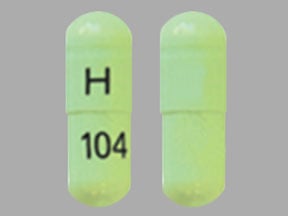My prescription
Edit
50MG, Indomethacin (30 Capsules)
Select pharmacy

CVS
$19.54
COUPON PRICE
Walmart
$6.67
COUPON PRICE
Walgreens
$10.76
COUPON PRICE
Albertsons
$10.93
COUPON PRICEIndomethacin savings card
Show this card to your pharmacist
Walmart
$6.67
BIN
ID
PCN
GRP
019876
LH6FD7A741
CHIPPO
LHX
Powered by
More prescriptions for rheumatoid arthritis
More prescriptions for rheumatoid arthritis
Price history for Tivorbex (brand) & Indomethacin (generic)
30 Capsules, 50MG
Average retail price for Tivorbex
Average retail price for Indomethacin
Average SaveHealth price for Indomethacin
Our price history data is based on aggregated prescription data collected from participating pharmacies in America. Our prescription data updates daily to reflect the latest price changes. If you notice a missing data point, it means there wasn't sufficient data available to generate a monetary value for that date.
We analyzed Indomethacin prices for (50MG, 30 Capsules) over the last 12 months. The average retail price was $55.59, while the average price using the SaveHealth discount card was $15.36. That's a savings of approximately 72.37% when using our Indomethacin coupon.
Compared to the generic version, Tivorbex had an average price of $1478.05 over the same time period. With the SaveHealth savings card, Indomethacin is 98.96% cheaper on average than Tivorbex.
*Retail prices are based on pharmacy claims data, and may not be accurate when we don't have enough claims.
Indomethacin dosage forms
Dosage Quantity Price from Per unit 20MG 30 Capsules $912.61 $30.42 25MG 1 Capsule $2.60 $2.60 25MG 6 Capsules $3.09 $0.52 25MG 8 Capsules $3.29 $0.41 25MG 12 Capsules $3.68 $0.31 25MG 14 Capsules $3.87 $0.28 25MG 15 Capsules $3.97 $0.27 25MG 20 Capsules $4.46 $0.22 25MG 21 Capsules $4.56 $0.22 25MG 25 Capsules $4.95 $0.20
| Dosage | Quantity | Price from | Per unit |
|---|---|---|---|
| 20MG | 30 Capsules | $912.61 | $30.42 |
| 25MG | 1 Capsule | $2.60 | $2.60 |
| 25MG | 6 Capsules | $3.09 | $0.52 |
| 25MG | 8 Capsules | $3.29 | $0.41 |
| 25MG | 12 Capsules | $3.68 | $0.31 |
| 25MG | 14 Capsules | $3.87 | $0.28 |
| 25MG | 15 Capsules | $3.97 | $0.27 |
| 25MG | 20 Capsules | $4.46 | $0.22 |
| 25MG | 21 Capsules | $4.56 | $0.22 |
| 25MG | 25 Capsules | $4.95 | $0.20 |
| 25MG | 30 Capsules | $5.45 | $0.18 |
| 25MG | 40 Capsules | $6.43 | $0.16 |
| 25MG | 50 Capsules | $7.41 | $0.15 |
| 25MG | 60 Capsules | $8.39 | $0.14 |
| 25MG | 90 Capsules | $11.34 | $0.13 |
| 25MG | 100 Capsules | $12.32 | $0.12 |
| 25MG | 180 Capsules | $26.67 | $0.15 |
| 25MG | 360 Capsules | $36.74 | $0.10 |
| 25MG | 1000 Capsules | $55.30 | $0.06 |
| 50MG | 30 Capsules | $6.67 | $0.22 |
| 50MG | 1 Capsule | $2.64 | $2.64 |
| 50MG | 14 Capsules | $4.44 | $0.32 |
| 50MG | 15 Capsules | $4.58 | $0.30 |
| 50MG | 20 Capsules | $5.28 | $0.26 |
| 50MG | 21 Capsules | $5.42 | $0.26 |
| 50MG | 40 Capsules | $8.06 | $0.20 |
| 50MG | 42 Capsules | $8.33 | $0.20 |
| 50MG | 50 Capsules | $9.45 | $0.19 |
| 50MG | 60 Capsules | $10.84 | $0.18 |
| 50MG | 90 Capsules | $15.00 | $0.17 |
| 50MG | 100 Capsules | $16.39 | $0.16 |
| 50MG | 180 Capsules | $33.72 | $0.19 |
| 50MG | 500 Capsules | $46.90 | $0.09 |

